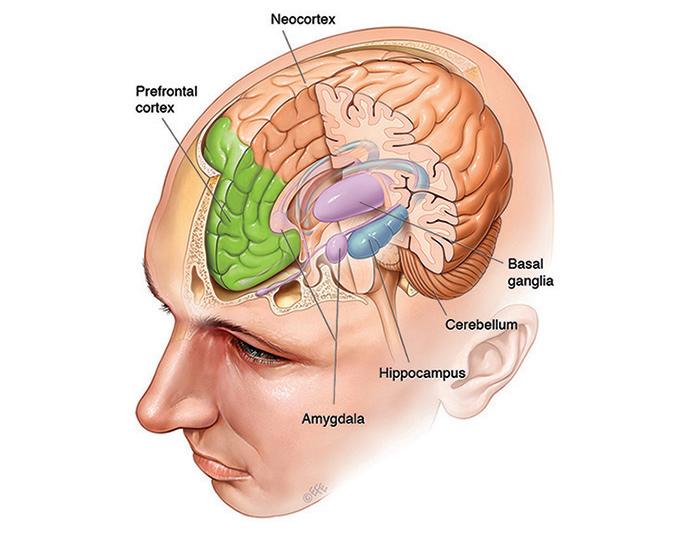From the first moment I discovered my dad
had been diagnosed with Alzheimer’s, it seemed like I was alone in this ugly
place. Even ones who had loved ones suffering in this way; even though people TALKED
about the disease, it felt for me like they did little more than mumble about the
experience. Not one to shut up for any known reason, I added a section to this
blog…
Every month, I’ll be highlighting Alzheimer’s
research that is going on RIGHT NOW! Harvested from different websites, journals
and podcasts, I’ll translate them into understandable English and share them
with you. Today: “Why some older adults remember better than others”
In a recent study conducted in Stanford University’s, Aging
and Memory Study, “researchers found that, on average, recall
ability declined with age. [author: duh!] Critically, however, regardless of
one's age, stronger hippocampal activity and replay in the cortex was linked to
better memory performance.”
OK, as I’ve done for breast cancer when I was writing my breast cancer “Translating
the Doctors”, I’m going to do that with the somewhat opaque statement.
First of all, “Memories aren’t stored in just one part of the brain.
Different types are stored across different, interconnected brain regions.
For explicit memories – which are about events that happened to you
(episodic), as well as general facts and information (semantic) – there are
three important areas of the brain: the hippocampus, the neocortex and the
amygdala. Implicit memories, such as motor memories, rely on the basal
ganglia and cerebellum. Short-term working memory relies most heavily
on the prefrontal cortex.”
Where the heck are
THOSE things? https://qbi.uq.edu.au/files/23535/Where-are-memories-stored-brain-diagram.jpg
The researchers
found that “remembering entails neural time travel, replaying patterns that
were previously established in the brain.” In other words, when something happens,
it lays down a path from the senses to the cortices where the particulars will
be stored.
For example, I
walk into a bakery and smell a hard ginger snap cookie and fall in love with
it. I buy trays of them for years. Then I move away and am gone for years,
missing the bakery. Then on an unexpected trip, I go back to the spot – and it’s
gone. Depressed and dejected, I’m walking through the mall and I smell a very
peculiar, gingery cookie smell – and the memory returns full force of the joy
of those cookies and the specific place I first smelled it.
That memory is stored
in the cortices; those and many more. As Alzheimer’s progresses, more of the
recent memories erode; but the oldest remain. “…long-term memory is not located
in just one specific area of the brain. The hippocampus is the catalyst for
long-term memory, but the actual memory traces are encoded at various places in
the cortex.” Hence, the reason an Alzheimer’s patient remembers all sorts of odd
memories.
So, how does the
hippocampus catalyze long term memories?
According to wiki:
“During the acquisition process, stimuli are committed to the short term memory
stage. Then, consolidation is where the hippocampus along with other cortical
structures stabilize an object within the long term memory stage, a process
strengthening over time and time again, and is a process for from whom a number
of theories have arisen to explain to as of why and how it actually works.
After encoding, the hippocampus is capable of going through the retrieval
process. The retrieval process consists of accessing stored information; this
allows learned behaviors to experience conscious depiction and execution.
Encoding and retrieval are both affected by neurodegenerative and anxiety
disorders and epilepsy.”
OK – now put it
all together and then tying that how the Stanford study is hinting at:
Things happen to
people; some stuff just slides over us (like how many times I breathed while doing
this post); some things happen fairly often, that they only make a vague
impression (like what I had for lunch last Thursday); other things we will
never forget (the day my dad died after a long, long decline). Why is that?
The memories are
always stored in the brain, but you have to THINK about the memory in order to
strengthen that memory. The more you think it, the more you remember it.
Alzheimer’s comes
in and starts to eliminate recent and vague memories. It ALSO messes with the
storage of new memories.
The Sanford study found
that the more we go over our memories, the better they will withstand both the
aging process and Alzheimer’s memory erosive progress, it may also defend against
the disease itself gaining a foothold in the brain.
Many people live
life “in the moment” and experience as much as they can with gusto, then move
on to the NEXT intense experience. Certain religions suggest that we “be
present in the now” and not worry about the future OR THE PAST.
Stanford University’s
study MAY be suggesting that a life lived in reflection rather than in thoughtless indulgence may help us remember
our lives...if or when Alzheimer’s strikes.
Resources: https://www.sciencedaily.com/releases/2020/06/200603132518.htm,
https://qbi.uq.edu.au/brain-basics/memory/where-are-memories-stored,
https://thebrain.mcgill.ca/flash/d/d_07/d_07_cr/d_07_cr_tra/d_07_cr_tra.html#:~:text=The%20reason%20is%20that%20long,various%20places%20in%20the%20cortex.,
https://en.wikipedia.org/wiki/Hippocampal_memory_encoding_and_retrieval#:~:text=The%20hippocampus%20is%20located%20in,during%20encoding%20and%20retrieval%20stages.
Image: https://www.meduniwien.ac.at/web/fileadmin/_processed_/e/1/csm_shutterstock_142671010_4683b6bf13.jpg


No comments:
Post a Comment